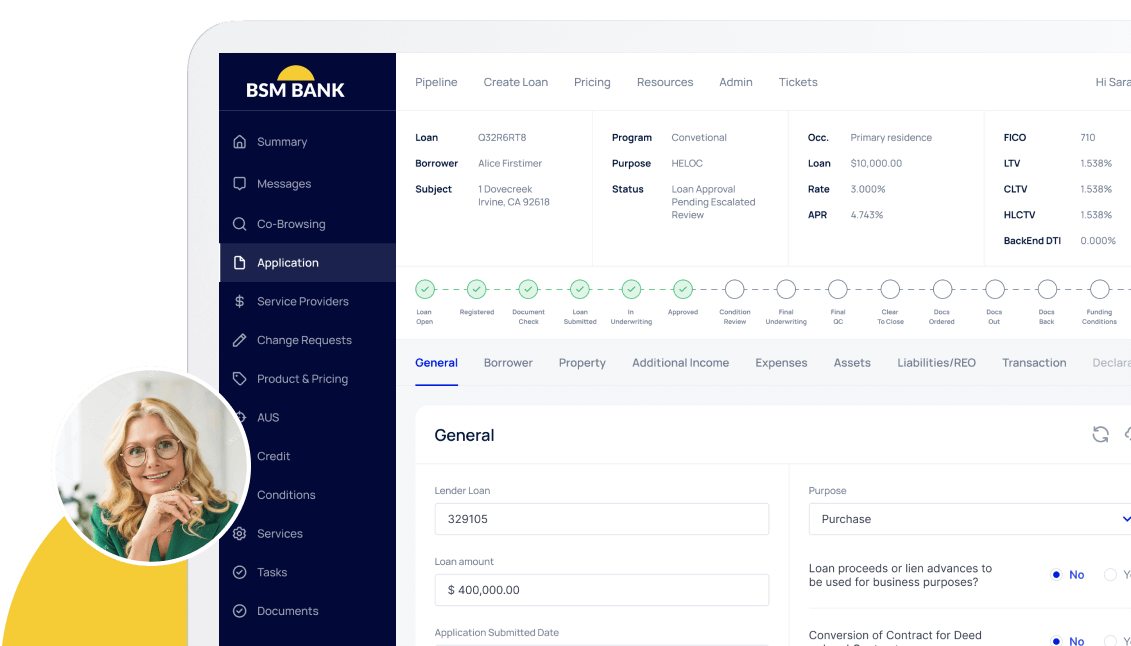In the high-stakes world of real estate finance, where homeownership remains the cornerstone of the American Dream, the mortgage industry especially mortgage mergers is a powerhouse. According to DoorLooop, the U.S. mortgage market was valued at approximately $19.9 trillion in 2023, reflecting its critical role in the housing sector and the broader economy. While the market has experienced fluctuations due to changing interest rates and economic conditions, it remains a significant driver of residential lending activity.
The mortgage industry has seen its fair share of seismic shifts over the years, driven by evolving market conditions, regulatory changes, and technological advancements. Among these transformations, mortgage mergers have played a pivotal role in shaping the industry’s landscape. These mergers consolidate market power and influence the experience for lenders, borrowers, and stakeholders alike. Let’s explore some of history’s most significant mortgage mergers and their lasting impacts.
Table of Contents
The Rise of Mega-Mergers
The mortgage industry, often driven by economies of scale, has seen a series of high-profile mergers designed to improve efficiencies, expand market reach, and manage risk. These mega-mergers have had wide-reaching consequences, from reshaping the competitive landscape to influencing housing affordability and the borrowing process.
Bank of America and Countrywide Financial (2008)
The acquisition of Countrywide Financial by Bank of America is one of the most notable mergers in the mortgage industry. At the height of the 2008 financial crisis, Bank of America purchased Countrywide for $4 billion. This acquisition marked an attempt to capitalize on Countrywide’s vast mortgage servicing portfolio, making Bank of America one of the largest mortgage lenders in the United States.
However, the deal came with significant challenges. Countrywide was deeply entangled in the subprime mortgage crisis, and its portfolio contained numerous high-risk loans. Bank of America faced substantial legal and financial ramifications post-acquisition, including settlements worth billions of dollars. Despite these challenges, the merger exemplified the industry’s drive toward consolidation during turbulent times.
Wells Fargo and Wachovia (2008)
Another landmark merger during the 2008 financial crisis was Wells Fargo’s acquisition of Wachovia for $15.1 billion. Wachovia had been struggling with losses tied to risky mortgage-backed securities, and this acquisition allowed Wells Fargo to expand its presence in the mortgage market significantly.
The merger positioned Wells Fargo as a dominant player in the mortgage servicing space, giving the bank access to Wachovia’s extensive branch network and a larger mortgage market share. Unlike Bank of America’s acquisition of Countrywide, Wells Fargo stabilized Wachovia’s operations relatively quickly, showcasing a more successful integration strategy.
The Evolution of Nonbank Mortgage Lenders
In recent years, nonbank lenders have become a driving force in the mortgage industry. These companies, unburdened by traditional banking regulations, have rapidly gained market share. As they continue to grow, mergers among nonbank mortgage lenders are shaping the modern lending landscape.
New Residential Investment Corp. and Caliber Home Loans (2021)
One of the most significant recent mortgage mergers involved New Residential Investment Corp.’s acquisition of Caliber Home Loans for $1.675 billion. This merger combined New Residential’s strong servicing capabilities with Caliber’s robust origination platform.
The merger aimed to create a powerhouse in mortgage servicing and origination, allowing the combined entity to compete more effectively against other major players. It also highlighted the increasing role of nonbank lenders in the mortgage market as they continue to innovate and expand their footprints.
Subscribe to BeSmartee 's Digital Mortgage Blog to receive:
- Mortgage Industry Insights
- Security & Compliance Updates
- Q&A's Featuring Mortgage & Technology Experts
Technology-Driven Consolidations
As technology continues to reshape the mortgage industry, companies are leveraging mergers to integrate advanced capabilities, streamline operations, and enhance customer experiences. These consolidations reflect the growing need for innovation in a competitive market.
Rocket Mortgage and Truebill (2021)
In 2021, Rocket Companies, the parent of Rocket Mortgage, acquired personal finance app Truebill for $1.275 billion. This strategic move allowed Rocket Mortgage to enhance its ecosystem by integrating Truebill’s budgeting, subscription management, and financial insight tools. The goal was to create a more holistic financial journey for customers, making it easier to manage personal finances and secure mortgages through a single, connected platform. This merger underscored the increasing focus on consumer-centric technology in the mortgage space.
ICE and Black Knight (2022)
Intercontinental Exchange (ICE), a leader in financial and mortgage technology, acquired Black Knight for $13.1 billion in 2022. Black Knight is known for its comprehensive mortgage servicing platform, which helps streamline loan origination and management processes. By integrating Black Knight’s tools with its existing capabilities, ICE aimed to provide an end-to-end solution for lenders and servicers. This merger highlights how technology-driven consolidations are enabling greater efficiency and innovation across the mortgage lifecycle.
The Implications of Mortgage Mergers
Mortgage mergers bring both opportunities and challenges to the industry. On one hand, they can lead to enhanced efficiencies, greater market reach, and improved technological capabilities. On the other hand, they can reduce competition, potentially leading to higher costs for borrowers.
Opportunities:
- Enhanced scale: Larger entities can offer more competitive rates and better products.
- Improved technology: Mergers often facilitate the integration of cutting-edge digital tools.
- Diversified services: Consolidation allows companies to provide end-to-end mortgage solutions.
Challenges:
- Regulatory scrutiny: Large mergers often face rigorous antitrust reviews.
- Cultural integration: Merging organizations can need help with aligning corporate cultures.
- Borrower impact: Reduced competition may limit borrower choice.
Roundup
As the mortgage industry continues to evolve, driven by economic fluctuations and technological innovation, mergers will likely remain a key growth strategy. Companies will increasingly focus on acquiring capabilities that enhance digital experiences and streamline operations, ensuring they stay competitive in a fast-changing market.
Whether you’re looking to stay competitive amidst industry consolidation or enhance your digital capabilities, BeSmartee provides the solutions you need to thrive. With features like automated workflows, real-time borrower interactions, and seamless integrations, BeSmartee is the perfect partner for navigating the future of the mortgage industry. Contact us today to learn how we can help you achieve your goals.




